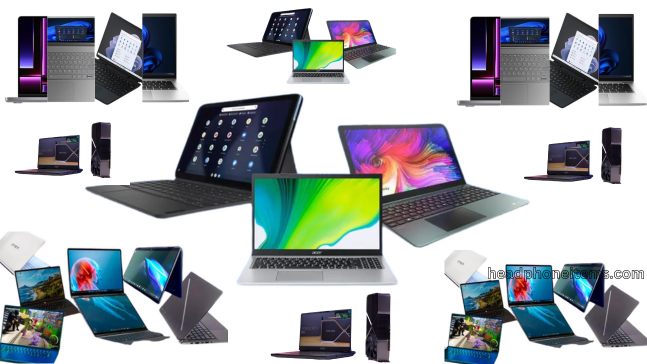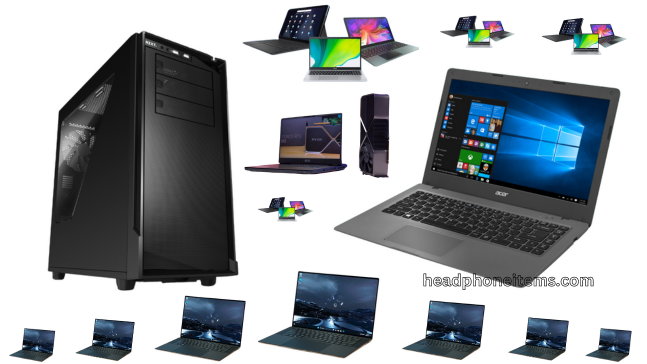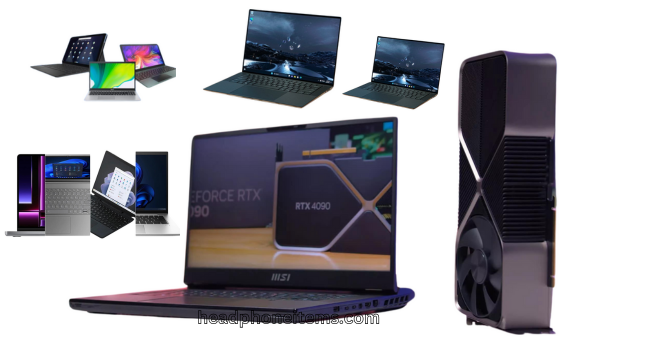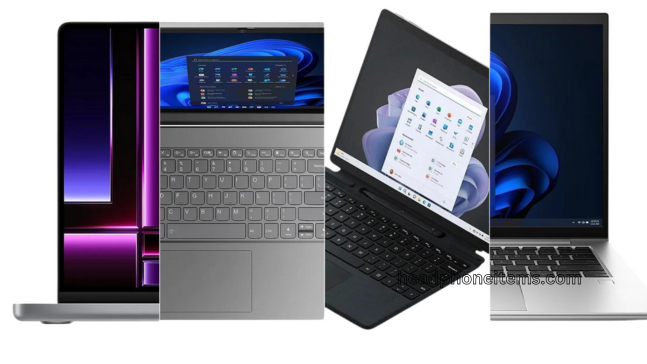Desktop processors are generally more powerful and offer greater capacity for customization than laptop processors. When comparing desktop vs laptop processor, it’s important to consider factors such as performance needs, portability, and budget.
A processor, also known as a central processing unit (CPU), is the brain of a computer. Performs all calculations and instructions necessary to run applications and programs. The choice between desktop and laptop processors often depends on individual needs and preferences.
While desktop processors are more powerful and offer higher performance options, they are not portable and can be expensive. On the other hand, laptop processors are suitable for people who need a laptop and are less demanding in processing power. We’ll examine the differences between desktop and laptop processors and help you determine which option is right for you.
Desktop Processors
Due to their larger size and higher power consumption, desktop processors offer better performance than laptop processors. Desktop processors are ideal for intensive tasks like gaming and video editing, while laptop processors are designed for portability and power efficiency.
Overview Of Desktop Processors
Desktop processors are high-performance CPUs explicitly designed for use in desktop computers. They are generally larger and have more powerful capabilities compared to laptop processors. Desktop processors are designed to handle intensive processes like gaming, video editing, and high-end software development. They come in different brands and models and vary in speed, memory capacity, and power consumption. Some popular desktop processor brands include Intel, AMD, and NVIDIA. These brands offer different models that adapt to various needs and budgets.
Performance Comparison With Laptop Processors
Regarding performance, desktop processors outshine laptop processors regarding speed, processing power, and memory capacity. Desktop processors typically have more cores, larger caches, higher clock speeds, and can handle heavier workloads than laptop processors. On the other hand, laptop processors are designed to be energy efficient, meaning they consume less power and generate less heat. This feature makes laptop processors ideal for mobile and laptop devices that rely on battery power. In general, desktop processors are the best choice for users who require high-performance computing. In contrast, laptop processors are suitable for users who need a balance between performance and power efficiency.
Comparison Table: Desktop Vs. Laptop Processors
| Features | Desktop Processors | Laptop Processors |
| CPU Cores | Varies, from 2 to more than 20 cores | Varies, from 2 to 8 cores |
| Clock Speed | Higher clock speeds, ranging from 2.8 GHz to 5 GHz | Lower clock speeds, ranging from 1.5 GHz to 3.5 GHz |
| Cache Memory | Larger cache, ranging from 4 MB to 64 MB | Smaller cache, ranging from 1 MB to 8 MB |
| Power Consumption | Higher power consumption, ranging from 45 to 200 watts | Lower power consumption, ranging from 15 to 45 watts |
| Integrated GPU | May or may not have an integrated GPU | Comes with integrated GPU to save power |
In conclusion, desktop processors offer better performance. They are more suitable for high-end computing tasks, while laptop processors are designed to be energy efficient and are ideal for mobile devices and laptops. The choice between these two types of processors depends on the user’s needs and priorities.

Laptop Processors
Laptop processors are designed for mobility with lower power consumption, but desktop processors prioritize power. Choosing between the two depends on your computing needs for performance or portability.
One of the most important factors to consider when buying a laptop is the processor. A processor is the brain of a computer that executes all tasks, including running programs and applications. However, choosing a suitable processor for your laptop can take time and effort, especially compared to desktop processors. This section will discuss an overview of laptop processors and their performance limitations compared to desktop processors.
Overview Of Laptop Processors
Laptop processors, also known as mobile processors, are designed to save power and have a smaller form factor suitable for laptops. Intel and AMD are the most common manufacturers of laptop processors. The most common types of laptop processors are Intel Core i3, i5, and i7, while AMD has the Ryzen 3, 5, and 7 series processors. A laptop processor consists of several cores, each of which works independently. Independent to perform a task. The number of cores determines the processing power of a laptop. For example, a quad-core processor has four cores, making it faster than a dual-core processor. Power consumption is another crucial factor when it comes to laptop processors. Laptop processors are designed to consume less power, ensuring your laptop battery lasts longer. The lower the power consumption, the longer the battery life.
Performance Limitations Compared To Desktop Processors
Although laptop processors have come a long way, they still have some performance limitations compared to desktop processors. The main limitation is the cooling system. Laptop cooling systems are smaller than desktops, making dissipating heat and keeping the processor running at optimal temperatures challenging. As a result, laptop processors heat up faster than desktop processors, leading to decreased performance. Another limitation is the customization options available. Laptop components are designed to be compact, making upgrading or replacing individual components difficult. It is often only possible to upgrade a laptop’s processor without replacing the entire motherboard, making it expensive. In conclusion, while laptops offer the convenience of portability, the performance of laptop processors depends on several factors, including form factor, number of cores, and power consumption. Although laptop processors perform well, they still have some limitations compared to desktop processors, mainly in cooling and customization options.
Factors Affecting Processor Performance
The processor performance of a desktop computer is generally better than a laptop due to several factors. The size of the desktop processor is more significant, allowing for more processing power and heat dissipation capabilities. Additionally, desktop processors typically have higher clock speeds and more cores, making them more efficient for specific applications.
The processor is a computer’s brain, responsible for executing all instructions. However, not all processors are created equal, and several factors can affect their performance. This article will cover four essential factors affecting processor performance: clock speed, number of cores, cache memory, and integrated graphics.
Clock Speed
The clock speed of a processor refers to the number of cycles it can execute per second. It is measured in GHz or MHz. A higher clock speed means the processor can execute more instructions per second, resulting in faster performance. However, a higher clock speed also generates more heat, which can cause stability issues and reduce the processor’s life.
Number Of Cores
The core of a processor acts as an independent processing unit that can execute instructions simultaneously with other cores. The more cores a processor has, the more tasks it can run simultaneously, resulting in faster performance. Most processors today have two or four cores, while high-end CPUs can have up to sixteen cores.
Cache Memory
Cache memory is a small amount of high-speed memory the processor uses to store frequently accessed data. It helps reduce the time it takes for the processor to access data in the main memory, resulting in faster performance. A larger cache size usually means better performance, but it also increases the processor’s cost.
Integrated Graphics
Integrated graphics refers to the graphics processing unit (GPU) built into the processor. Today, most processors come with integrated graphics, although high-end CPUs typically do not. Integrated graphics are less potent than discrete graphics cards but are still capable of basic tasks and light gaming. In conclusion, several factors affect processor performance, including clock speed, number of cores, cache memory, and integrated graphics. When purchasing a processor, it is essential to consider these factors to ensure you get the best possible performance for your needs.
Real-world Applications
Desktop processors are generally more potent than laptop processors. However, laptop processors are designed to prioritize energy efficiency and mobility. Choosing between the two ultimately depends on user needs and specific real-world applications.
When choosing between a desktop and a laptop, the processor is one of the most critical factors to consider. The processor is the computer’s brain, responsible for executing commands and allowing the computer to run smoothly. Both desktop and laptop processors have unique advantages and limitations, so evaluating real-world applications and how each type of processor affects performance is essential. This article will look at gaming performance, video editing performance, and the impact on laptop battery life.

Gaming Performance
Gamers always look for the best hardware to run their favorite games smoothly. In general, desktop processors tend to be more powerful and have better cooling, ensuring they can easily handle more demanding games. However, modern gaming laptops have powerful processors that can handle most games without sweat. The advantage of having a gaming laptop is that it is portable so gamers can enjoy their games on the go.
Video Editing Performance
Video editing is one of the most demanding tasks on a computer. It requires a powerful processor, sufficient RAM, and a dedicated graphics card. Due to their higher clock speeds and ability to run multiple cores and threads, desktop processors are preferable for video editing. Laptops can also edit video, but they may not perform as well as desktop computers and can overheat, resulting in slower rendering times.
Battery Life Impact On Laptops
A significant difference between desktop and laptop processors is their impact on battery life. Laptop processors are designed to be more energy efficient to ensure the battery lasts longer, while desktop computer processors consume more power when connected to a power source. Laptops that use power-hungry processors may have reduced battery life and must be charged frequently. However, newer laptops come with energy-efficient processors, which help conserve battery life, making them ideal for users who work on the go. In conclusion, both desktop and laptop processors have their advantages and limitations. When choosing between the two, evaluating your needs and usage patterns is essential. If you’re a gamer or video editor who needs raw power, desktop processors are the way to go. On the other hand, if portability is your main concern, a laptop with a powerful processor will suffice.
Budget Considerations
Desktop processors are generally more potent than their laptop counterparts but can consume more power and cost more. When deciding between the two, consider your budget and the tasks you need the processor to perform.
Cost Of Upgrading Desktop Processors
If you’re on a tight budget and own a desktop computer, upgrading your processor can be a substantial consideration. Purchasing a new processor plus the installation cost can add up quickly. It’s important to research which processors are compatible with your current setup before purchasing. Upgrading your desktop processor can cost anywhere from $50 to $500, depending on the make, model, and specifications. Additionally, hiring an expert will increase the expense if you are not comfortable with DIY installations.
Value For Money When Buying Laptops
When purchasing laptops, they are generally less expensive than desktop computers, making them an attractive option for those on a budget. Laptops offer portability and convenience but may have different processing power than desktop computers. However, with rapid advancements in processor technology, laptops now come with high-performance processors. When considering value for money, it is essential to research the specifications of different laptops before deciding on one. Some notable budget-friendly laptops include the Acer Aspire 5, Lenovo IdeaPad 3, HP 15, and Dell Inspiron 14. These laptops offer adequate performance for everyday use and light multitasking without breaking the bank. In conclusion, when considering a budget option, comparing the cost of upgrading desktop processors with the value for money when purchasing a laptop is essential. Both options have advantages and disadvantages, so thorough research and analysis of your needs are critical to making the right decision.
Future Trends
The world is evolving unprecedentedly, and technology changes every day. As a result, the future of computer processors is a hot topic in the technology industry. Some future trends stand out as particularly noteworthy when comparing desktops and laptops.
Advancements In Laptop Processor Technology
- Recently, there has been a significant push to make laptop processors more powerful. This trend is likely to continue in the future as laptops become even more central to the way we work and play. Some of the most promising advances in laptop processor technology include:
- A higher number of cores allows for better multitasking and more efficient use of resources.
- Better energy efficiency and longer battery life, allowing us to use laptops for longer without needing to recharge
- Improved integrated graphics can make laptops more attractive for gamers and other power users.
Convergence Of Desktop And Laptop Processors
Another exciting trend in computer processors is the convergence of desktop and laptop technology. As laptops become more powerful and easier to use, the line between what constitutes a “desktop” and what constitutes a “notebook” is becoming increasingly blurred. This trend is likely to continue in the future, with some potential outcomes including:
| Advantages of Convergence | Disadvantages of Convergence |
| More power and performance in smaller form factors, bringing desktop-level performance to laptops | Potential drawbacks in terms of heat dissipation and battery life |
| Greater flexibility and portability in desktop computers, allowing them to be used in a wider range of settings | Possible increase in cost as more powerful components are squeezed into smaller spaces |
Overall, the future for computer processors looks bright, and desktop and laptop technologies continue pushing the boundaries of what’s possible. Whether you’re a power user in need of a high-performance desktop or a mobile professional looking for a compact laptop, there are sure to be interesting developments on the horizon.
Frequently Asked Questions On Desktop Vs Laptop Process
Are Laptop And Desktop Processors The Same?
Laptop and desktop processors are not the same, but they are similar in functionality. Both use processing units to execute instructions, but notebooks are designed to be more compact and energy-efficient. Desktop processors have higher clock speeds and are more powerful, making them ideal for high-performance tasks.
Are Laptop Processors Faster Than Pc?
Laptop processors are sometimes slower than PC processors. It depends on the specific processor models and their specifications. Generally, desktop processors are more powerful and have higher clock speeds due to their larger size and better cooling systems. However, laptops are designed for portability and energy efficiency and require smaller, less powerful processors.

Can You Use Desktop Processor In Laptop?
Desktop processors can only be Laptops have a different form factor and require processors explicitly designed for them.
Can I Replace Laptop Processor With Desktop Processor?
No, you cannot replace a laptop processor with a desktop processor. The two types of processors have different form factors and are physically incompatible. Additionally, a laptop’s cooling system is not
What Is The Difference Between A Desktop And A Laptop Processor?
Desktop processors are more powerful but consume more power, while laptop processors are more energy-efficient and portable.
Conclusion
Both desktop and laptop processors have advantages and disadvantages. The choice between the two will depend on each person’s needs, preferences, and budget. However, with the advancement of technology, laptop processors are becoming more powerful than ever and offer a desirable level of convenience and portability.
When considering upgrading your device, choose a processor that fits your needs and supports your goals.

